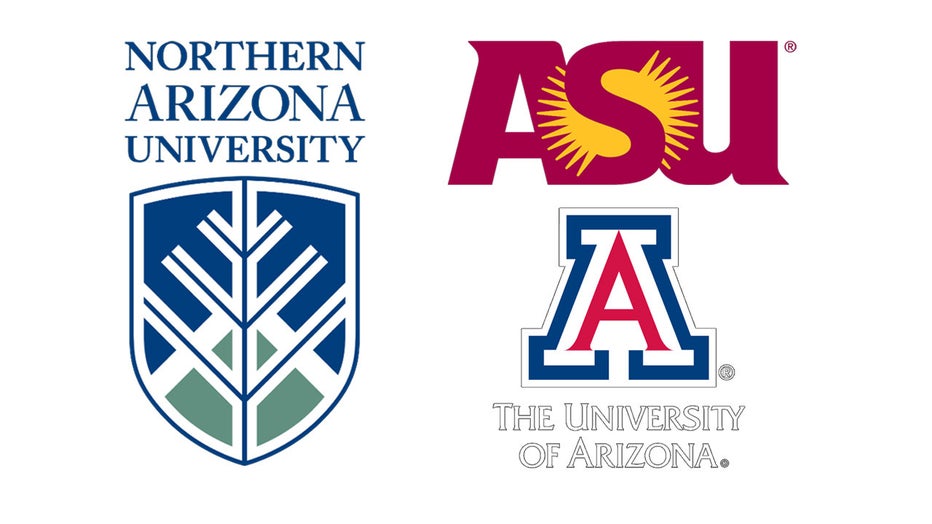Arizona colleges move to extend tuition rate for immigrants
PHOENIX (AP) - Arizona universities are moving to expand access to a tuition rate paid by immigrants living in the country illegally who graduated from Arizona high schools after President Donald Trump's administration froze enrollment in a program that shielded them from deportation.
The state's three public universities have for several years allowed students from Arizona in the Deferred Action for Childhood Arrivals program to pay university tuition that's higher than their in-state classmates but lower than the standard rate for out-of-state and international students.
On Thursday, the Board of Regents decided to drop a requirement for students to participate in DACA in order to qualify for the special rate at the state's three public universities, because future students can't get into the federal program.
"The board recognizes that Arizona has made a significant investment in students who have graduated from Arizona high schools, and this rate is intended to encourage students to stay here or move back and complete their education here and contribute to the state," said Sarah Harper, a spokeswoman for the regents.
The move is the latest effort by the regents to provide access to immigrants, often called "Dreamers" based on never-passed proposals in Congress called the DREAM Act, who have spent much of their lives in Arizona but aren't legally in the country. Voters in 2006 barred in-state tuition or publicly funded scholarships for them. After President Barack Obama created the DACA program, universities and community colleges charged in-state tuition to students in the program but were rebuffed by the Arizona Supreme Court.
DACA recipients pay close to $18,000, while out-of-state tuition runs around $36,000. Cesar Hernandez was brought to the United States when he was seven, He did not qualify for DACA, so the new expanded access will benefit him directly.
"There is absolutely no harm caused by young, motivated individuals who just want to pursue their career and want to be valuable members of society," said Hernandez.
Hernandez worked hard, and got a scholarship to Brophy. After graduating in 2017, he attended a community college because he cannot afford out-of-state tuition. Now, Hernandez says he will be able to go to a four-year university and pursue his dreams.
"Eventually graduate, get my degree and start my career as a photojournalist," said Hernandez, in a phone interview.
While many praise the move made by the Regents, some disagree.
"I definitely don't believe it's correct or right for either the Arizona Board of Regents or even other organizations to incentivize illegal behavior," said Lori Hack of Peoria. "I think immigrants who become citizens and do it the right way, that is what America is all about. So again, I'm disappointed that they've done this and I think it's going to cause unrest in people that want to do things the right way."

The action by the regents comes after lawmakers this year declined to take up legislation that would have accomplished the same thing, and also would have applied to community colleges. A bill by Republican Sen. Heather Carter cleared the Senate when several Republicans joined all Democrats in support, but it never got a vote in the House.
Meanwhile, the Arizona Court of Appeals declined to revive a lawsuit by Attorney General Mark Brnovich alleging tuition is too high at the state's three public universities. The justices upheld a 2018 decision by the Maricopa County Superior Court which found Brnovich doesn't have standing to sue over the issue.
Brnovich says current tuition rates violate the Arizona Constitution's guarantee of a college education that's "as nearly free as possible." The regents say universities have to contend with declining state support.
Last semester, about 400 students paid the rate, and students who graduated from an Arizona high school, move away and want to come back to college in Arizona will also be eligible for the same rate.
The Associated Press (AP) contributed to this report.


